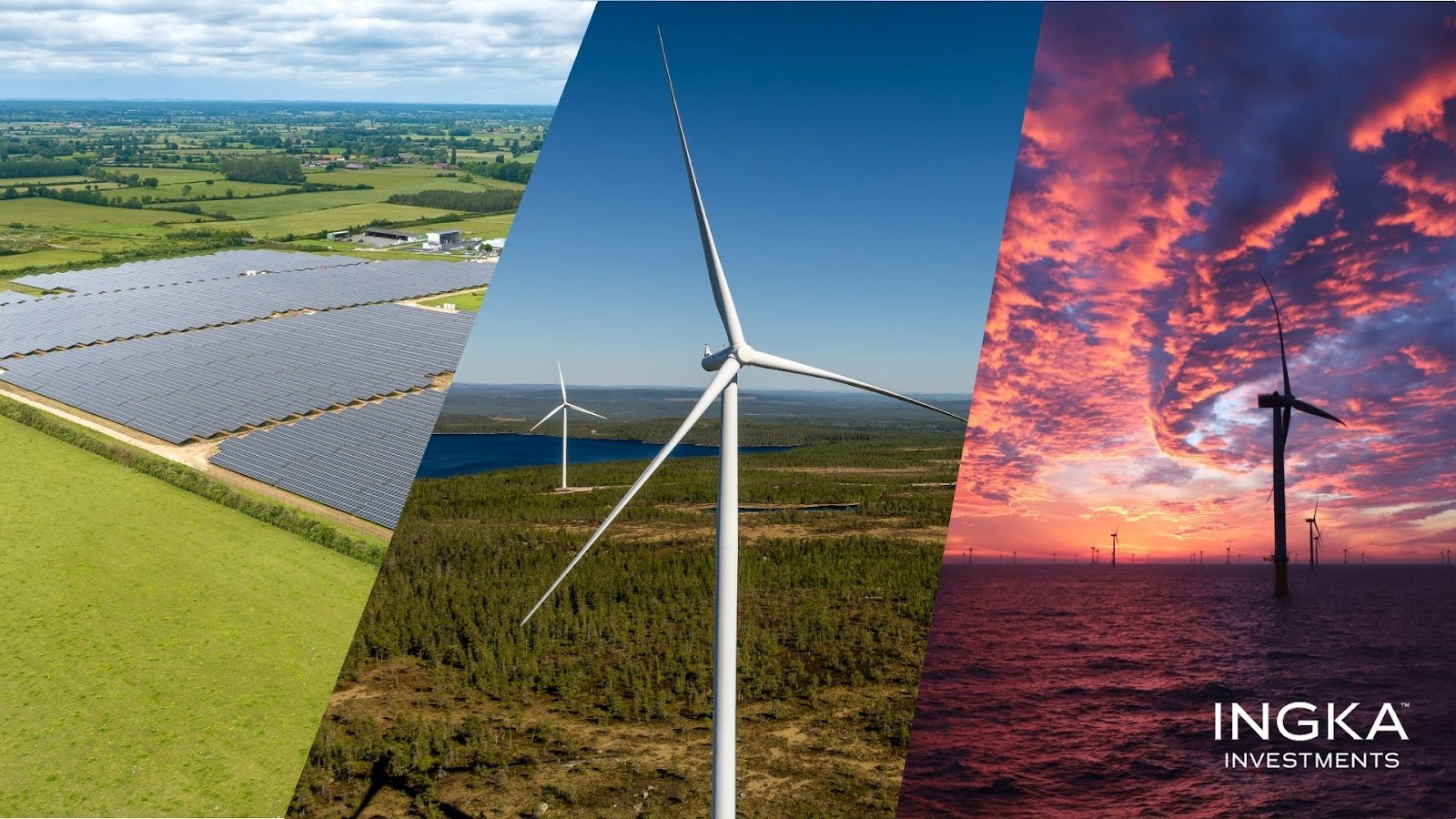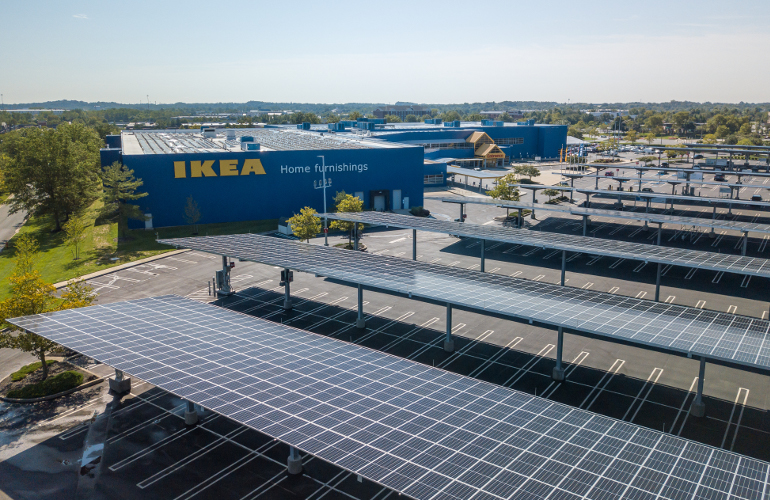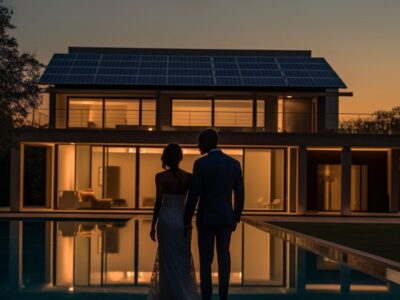Ingka Group, the biggest global IKEA retailer, has a sustainability strategy that is equally dedicated to the environment and people. “From the moment we get up to the moment we go to sleep we use electricity without even thinking about it. But when you stop to consider that most of that energy comes from fossil fuels and the effect that it is having on our planet and health, one of the most impactful things we can all do is switch to clean energy,” Alejandro Castro Pérez, former head of new business development and innovation for Ingka, reflected on the company’s website. Thus, clean energy has become a central part of the company’s operations and offerings.
In March, Ingka Group’s investment branch, Ingka Investments, began building the Kingstree West photovoltaic solar park in Williamsburg County, South Carolina. The project marks the company’s first internally developed solar park. Created in collaboration with construction partners Rosendin Electric and Forum Energy Partners, the 74.9MWac project’s 178,000 modules will produce 186 gigawatt hours (GWh) of energy per year once completed. That is enough to meet the energy needs of 15,200 local residences.
The company will fully fund the project, meaning the local community will not bear any construction costs, but will reap all the benefits. Ingka Group expects the project to generate $7.6 million in property tax revenues for Williamsburg County throughout its operational lifetime.
Additionally, since 2023, Ingka Group has been readying a sister project a mere 27 miles away. By unanimous decision, the South Carolina Public Utilities Commission approved the company’s request for a certificate of public convenience and necessity for their 249MWac Kingstree East project.
The news about the Kingstree West project comes after Ingka Group’s publication of its Net Zero Transition Plan in February. Among the goals laid out in furtherance of reducing its climate footprint 50% by 2030 and at least 90% by 2050 are the elimination of fossil fuels and an emphasis on energy efficiency. Between 2016 and the plan’s release, Ingka Group had already reduced its climate footprint by 30.1%. The company particularly emphasized solar energy during that period, with IKEA installing its first of seven solar car parks in Baltimore in 2021.

Photo Courtesy Ingka Group
These projects are part of Ingka Group’s one-billion-euro investment in clean energy innovation and transitional technologies, which was announced at the end of 2023. It goes beyond the company’s $6.5 billion investment in clean energy generation assets to support green fuels, energy storage, and the company’s supply chain. Its total investment in the renewable sector now stands at 7.5 billion euros by 2030.
Ingka Group CEO Jesper Brodin noted, “Since 2009 we have invested and committed EUR 4 billion in utility scale renewable energy production, now making us a medium-sized renewable energy company. We have ambitious projects in the pipeline, including many early-stage developments and planned offshore wind projects. This, combined with our new commitment of 1 BEUR for innovation and transformation, means we are proud to say we are on our way to becoming a major powerhouse in renewable energy.” Thus far, Ingka Investments has invested in 49 wind farms in 17 countries and 26 solar parks in nine countries.

Photo Courtesy Ingka Investments
Frederik de Jong, head of renewable energy at Ingka Investments, explained, “The investments in the US are a strategic priority to increase our renewable energy production and to secure long-term access to renewable energy that can help to further reduce our footprint. We will supply the grid with reliable, affordable clean energy. We have an important role to play to encourage the production of more renewable energy. Adding more solar energy to our existing renewable energy portfolio in the US will create a better match between the renewable energy production and consumption profile of Ingka Group.”
Simon Henzell-Thomas, global director of climate and nature at Ingka Group, emphasized that while the company is making significant contributions, it cannot make change alone, “Climate change has no borders and together – across the public and private sector – we must collaborate across industries and with governments and customers to drive real change. 2025 is a critical milestone for governments to deliver their own ambitious national climate plans ahead of COP30, so we invite policymakers, industry peers, and customers to collaborate in accelerating the transition to a sustainable future. We can only get there by working together.”





